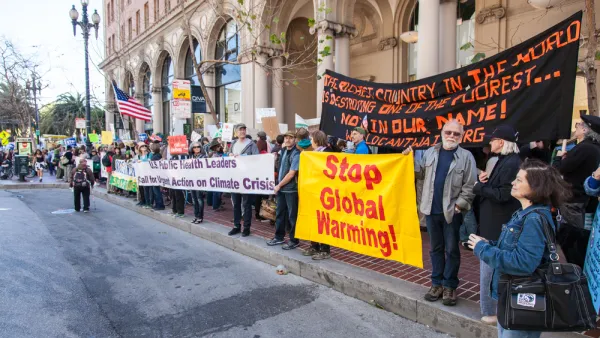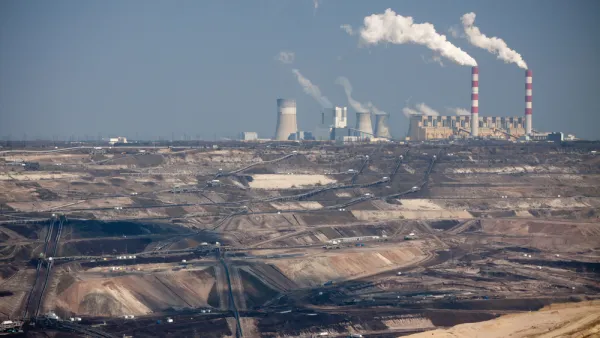A new interactive map titled "1,001 Blistering Future Summers" displays predicted daytime summer heat temperatures for 1,001 cities in the United States for the year 2100.
According to an article by John Metcalfe, Climate Central drew from the drew from the high emissions scenario in the Intergovernmental Panel on Climate Change's (IPCC) Fifth Assessment Report to elegantly map the year 2100 temperatures for 1,001 cities around the United States. Temperatures are expected to rise an average of 7-10 degrees Fahrenheit by 2100. This model assumes current greenhouse gas emission trends keep increasing through 2080 as they have been for the past several decades, according to Climate Central's report. In additional analyses, Climate Central used different emissions scenarios from the IPCC, and saw that U.S. cities will still experience varying levels of summer warming despite reductions.
The analysis looks primarily at daytime summer heat between July-August, as these temperatures are the hottest of they day. Moreover, the analysis precludes factors like humidity, wind, and dewpoint, which affect how insufferable summer heat can be.
FULL STORY: How Much Hotter Will Your City Be in 2100?

National Parks Layoffs Will Cause Communities to Lose Billions
Thousands of essential park workers were laid off this week, just before the busy spring break season.

Retro-silient?: America’s First “Eco-burb,” The Woodlands Turns 50
A master-planned community north of Houston offers lessons on green infrastructure and resilient design, but falls short of its founder’s lofty affordability and walkability goals.

Delivering for America Plan Will Downgrade Mail Service in at Least 49.5 Percent of Zip Codes
Republican and Democrat lawmakers criticize the plan for its disproportionate negative impact on rural communities.

Test News Post 1
This is a summary

Test News Headline 46
Test for the image on the front page.

Balancing Bombs and Butterflies: How the National Guard Protects a Rare Species
The National Guard at Fort Indiantown Gap uses GIS technology and land management strategies to balance military training with conservation efforts, ensuring the survival of the rare eastern regal fritillary butterfly.
Urban Design for Planners 1: Software Tools
This six-course series explores essential urban design concepts using open source software and equips planners with the tools they need to participate fully in the urban design process.
Planning for Universal Design
Learn the tools for implementing Universal Design in planning regulations.
EMC Planning Group, Inc.
Planetizen
Planetizen
Mpact (formerly Rail~Volution)
Great Falls Development Authority, Inc.
HUDs Office of Policy Development and Research
NYU Wagner Graduate School of Public Service




























